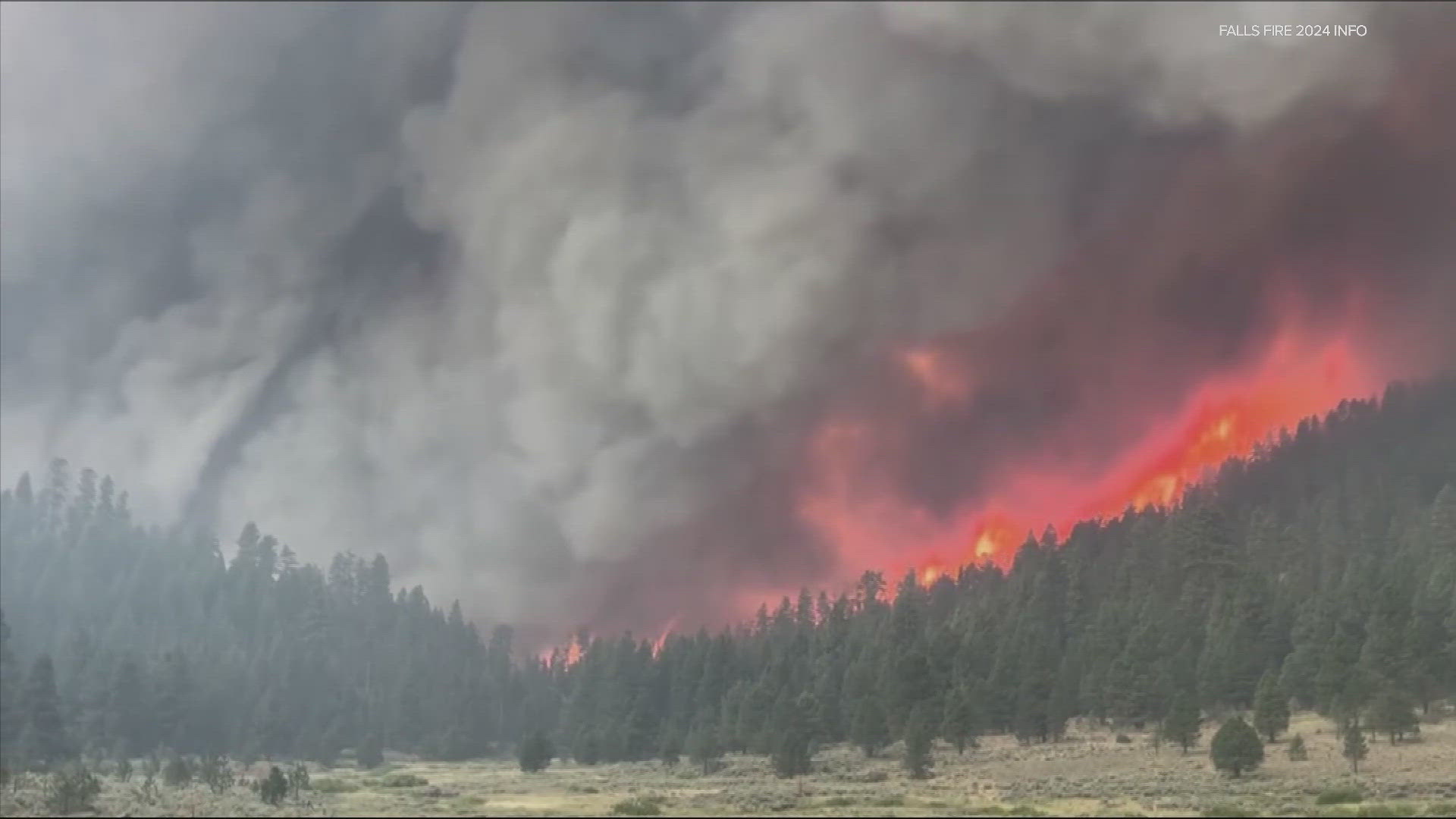SALEM, Ore. — Oregon lawmakers are calling for a new way to pay for fighting wildfires after approving emergency funds for the Oregon Department of Forestry (ODF).
KGW previously reported that 2024 has been the costliest wildfire season in state history, with total costs surpassing $260 million at last count. As of mid-September, more than 1.9 million acres of land have burned across Oregon, nearly double the acreage of any other year in the past 30 years.
Oregon's Emergency Board, an agency that allocates emergency money to state departments until lawmakers return to make permanent funding decisions, approved a $47.5 million request for ODF on Wednesday, using various funding sources.
For all of its many requests from competing state agencies, the E-Board allocated $24 million from its own general fund. The majority of that — $20 million — went to ODF for wildfire costs, illustrative of the board's priority and the agency's pressing need.
In response, some lawmakers said the current system is unsustainable as fire costs have risen too high, calling for the state to come up with a new funding or wildfire mitigation strategy.
“It's time that we actually rethink, or at least perhaps modernize the way in which we anticipate costs for mega-sized disasters," said Rep. Paul Evans, D-District 20, Monmouth. "I think we are now in an era where fires and emergencies are going to get bigger every year."
Even with the emergency allocation of $47.5 million, state analysts with the Legislative Fiscal Office project ODF will be insolvent by November without additional help, including a payroll loan and executive action.
Rep. Mark Owens, who is on the E-Board, cited this summer's Falls Fire as evidence for change.
"It cost $100 million to suppress financially. Oregon, even with insurance policies, cannot suppress their way out of this issue," Owens, R-Crane, said. "Ladies and gentlemen, to point out the obvious, this is going to get expensive."
Owens added that he recently talked to contractors who helped fight wildfires this summer who are still waiting to get paid.
"ODF, because of the budget right now and the amount of money that needs to go out, owes this company $1.1 million," he said. "They called me yesterday; they don't have enough money to pay payroll... that's why we need to act on this today because they're going to have to get a loan in order to pay their employees."
Prioritizing wildfire emergency funding means other agency requests have to wait, such as the Port of Portland. Gov. Tina Kotek directed the Port of Portland and Oregon Business Development Department to request $5 million for "critical investments" at the Port's Terminal 6, the state's only international shipping container terminal providing marine cargo service.
The E-Board deferred the $5 million request to a later meeting, according to the spokesperson for the Port of Portland.
The spokesperson thanked Gov. Kotek's recognition of the terminal's impact on the regional economy and the need for improvements, adding, "We know that many Oregon communities have been devasted by wildfires this year and support state investments in those areas, and we look forward to continuing this conversation with the Joint Emergency Board in December."

